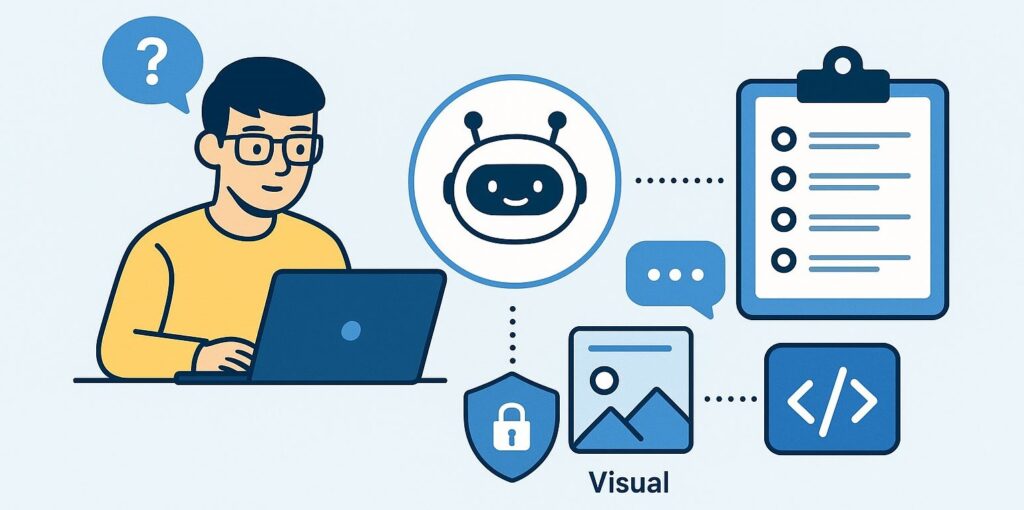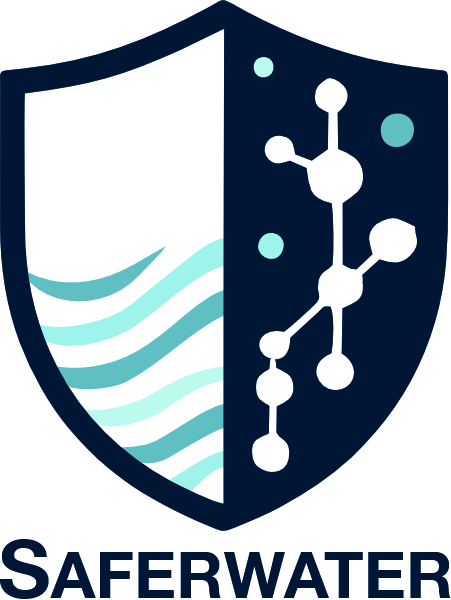Kategorie: ‘Projects’
JUPITER AI Factory (JAIF)
The JUPITER AI Factory (JAIF) is one of 19 AI-Factories (AIFs) in Europe, uniquely built around the European Exascale-Supercomputer, JUPITER. Located at the Jülich Supercomputing Centre (JSC) of Forschungszentrum Jülich (FZJ), JAIF aims to bridge the gap between AI research and real-world applications, providing access to cutting-edge AI infrastructure for researchers, industry, and the public sector.
LENS-C: Learning, Exams, and eNgagement Structure – Chatbots
With the rise of LLM-based chatbots, students increasingly rely on these tools to support their studies. While they provide convenience and immediate assistance, their use also raises important questions: How do chatbots influence the way exercises are solved? Do they change how competencies are developed? And how should exams and learning tasks be designed in response?

Image generated with AI.
The LENS-C project investigates these questions by developing and testing an anonymous feedback mechanism. By applying this mechanism across different task types—ranging from multiple-choice questions to coding and visual assignments—we aim to better understand how chatbot assistance shapes learning outcomes. The insights will be used to improve exercise and exam design, strengthen quality assurance in teaching, and provide guidance to both educators and students.
MOSAIC: Malignant Cell Atlas based on Single-cell Transcriptomics
Cancer remains one of the most devastating diseases worldwide, with high mortality rates and limited long-term treatment success. While therapies have advanced, most current interventions only provide marginal improvements in overall survival and progression-free survival. A major reason for this limited success lies in the heterogeneity of cancer cells—even within a single tumor, cells can differ dramatically in their molecular states, drug sensitivities, and potential for metastasis.
Single-cell RNA sequencing (scRNA-seq) has revolutionized our ability to study this complexity. Unlike traditional bulk RNA sequencing, scRNA-seq allows us to profile gene expression at the resolution of individual cells, revealing subtle differences in cell populations, lineage trajectories, and cell–cell interactions. Recent advances in platforms such as 10x Genomics have enabled the profiling of millions of cells in a single experiment, offering unprecedented insights into disease biology.
Despite progress, one crucial gap remains: the lack of a comprehensive, cancer-focused cell atlas that integrates diverse datasets to capture malignant cell heterogeneity across tissues. Moreover, while large foundation models have transformed fields like natural language processing and computer vision, their potential in single-cell biology—and specifically cancer biology—remains largely unexplored. Early efforts such as scGPT and Geneformer demonstrate the promise of large-scale, self-supervised learning in biology, but no existing cross-organ, cancer-specific foundation model currently exists to connect cellular states with patient outcomes such as survival and treatment resistance.
champI4.0ns
The wood industry presents an ideal case for intelligent and sovereign data use along the value chain, especially in light of the shift toward a sustainable economy. Data offers numerous opportunities, such as improving traceability, optimizing machinery, and reducing waste and transport. The diversity in digital maturity among companies poses challenges but also provides transferable insights for other sectors. The champI4.0ns initiative is building on previous projects and fostering tools that demonstrate the potential of cross-company data use in production.
Topics of interest:
-Data Spaces and Data Ecosystems;
-Semantic modelling;
-Federated Learning.
SAFERWATER
The SAFERWATER project addresses major challenges in water management, such as climate change, population growth, and increasing cyber threats to critical infrastructure. It focuses on modernizing dams and water supply systems while leveraging digitalisation to enhance security and efficiency.
Water supply systems are facing major challenges due to climate change, population growth, and the increasing threat of (cyber)attacks on critical infrastructure. Reservoirs and water treatment facilities in particular need to be modernized, operated in an environmentally and climate-friendly manner, and simultaneously protected against digital threats.
While ongoing digitalization offers opportunities for more efficient operations and management, it also introduces new vulnerabilities to cyberattacks. The joint research project SAFERWATER is therefore developing a secure, AI-driven approach aimed at significantly enhancing the resilience and efficiency of reservoirs and water supply infrastructures.



Blockchain4DatenMarktplatz.NRW
This project develops an open-source prototype to enable a blockchain-based business model for Datenmarktplatz.NRW. The platform provides data scientists in the Rhenish mining area (Rheinisches Revier) with access to historical IoT datasets for AI development and integrates real-time IoT streams into AI systems for continuous value creation. The prototype ensures tamper-proof data handling, automates secure processes, and implements a seamless reward system using blockchain and smart contracts, fostering trust and efficiency in the marketplace.
NFDI4DS
NFDI4DS is a national research data infrastructure for Data Science and AI project. The overarching objective of the project is the development, establishment, and sustainment of a national research data infrastructure (NFDI) for the Data Science and Artificial Intelligence community in Germany.
